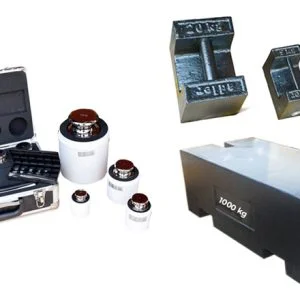Arab Scale offers laboratory standard weight calibrated to exacting standards, ensuring the accuracy and reliability of weighing instruments used in scientific research, industrial processes, and quality control procedures. These precision weights are essential tools for calibration, verification, and maintaining measurement integrity in laboratory settings.
FAQ
1 What are laboratory standard weights?
2 Why are standard weights important?
Standard weights guarantee reliable and consistent results in scientific research, quality control, and crucial industrial processes requiring precision.
3 What factors should I consider when selecting standard weights?
4 How often should I calibrate standard weights?
Regularly calibrate standard weights, typically annually or semi-annually, and verify their accuracy before each use.
5 What services does Arab Scale provide for standard weights?
6 What materials are used for standard weights?
7 What is the accuracy class of a standard weight?
8 How do environmental conditions affect standard weights?
Temperature, humidity, and air pressure can affect the accuracy of standard weights. Properly store and handle them to maintain accuracy.

